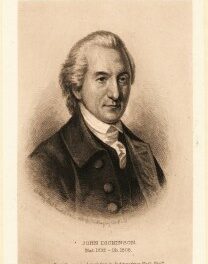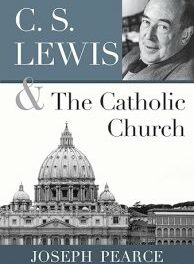We support our Publishers and Content Creators. You can view this story on their website by CLICKING HERE.
Don Bosco’s character was in keeping with his physique: balance and firmness, but also courage and enthusiasm. He was a legendary figure, a living exemplar of sanctity in action. During one of his visions the ineffable Presence asked him what he desired, and he replied: “Lord, give me souls and keep the rest.”
The Church of the Revolutionary Age: Facing New Destinies, Volume 2, by Henri Daniel-Rops (324 pages, Cluny Media)
Don Bosco (1815–1888), during a visit to France in 1883, was described by the Parisian press as “the Italian St. Vincent de Paul.” The expression was true only grosso modo, for Don Bosco confined his activity to the almost unique problem of unfortunate and abandoned children. But he understood that problem so thoroughly, and made his contemporaries aware of it to such good effect, that a vast organization was reared upon his achievement.
Let us take a look at him nel mezzo del camino, as Dante says. Forty was the age of his full maturity, when the work he had undertaken in the unrestrained audacity of earlier years began to take firm root, when the humble priest had become superior of a congregation that asked for nothing but expansion. Though not above medium height, Don Bosco was broad-backed and possessed great physical strength; but his open countenance proclaimed an inner calm and kindliness. Beneath the dark curly hair lay a high forehead, keen and penetrating eyes, a strong nose, a mouth made for smile and prayer. There was nothing of the ascetic about his appearance; yet even in his most joyous moments he wore an air of recollection. With a single word and without raising his voice he was able to command the obedience of five hundred excited boys. He was entirely human, but at the same time radiant with supernatural light.
Bosco’s character was in keeping with his physique: balance and firmness, but also courage and enthusiasm. He liked to laugh; as a boy he had amused his comrades with feats of acrobatics and conjuring tricks, and he continued to do so for the rest of his life. He was rather like St. Philip Neri in some ways, and it was not for nothing that he admired the founder of the Oratory. A sad saint is a sorry saint, says the proverb; and Don Bosco, even at the most trying moments, was never sad, because joy is synonymous with faith in God. One must not, however, forget that his cheerfulness went hand in hand with great ability. He was certainly not “crafty,” but he had an instinctive knowledge of human beings, of their secret purposes and of the working of their minds. He was a diplomat as well as a man of action.
Those gifts were the fruit of his early years as a poor peasant lad, losing his father when only six years old and brought up the hard way, but trained to the noblest traditions of Christianity by a wonderful mother, a true guide on the road to sanctity. As soon as her little Giovanni showed signs of a vocation at the age of nine she prepared him to become in the fullest sense a priest.
Nevertheless it was very difficult for him to answer the call. In the eyes of his half-brother, head of the family, a brat who wanted to become a priest was a lazy good-for-nothing. Let him get a job and earn a few lire! But an old priest became aware of his talents; Giovanni himself was unshakable in his determination; and so it came about that he was able to start learning Latin and prepare to enter the seminary at Chieri.
There is much to be said for such an upbringing, especially when the child who receives it possesses exceptional qualities. When he donned the cassock at the age of twenty his mind was already formed and he was a good latinist. At twenty-six, when he was ordained and left Chieri for the Ecclesiastical College at Turin, he was a man of wide and profound culture; besides Latin he knew Greek and Hebrew, spoke fluent French and a little German, and appears to have read all that matters in the sciences sacred and profane. Both as speaker and writer he expressed himself with infectious ardour. At the age of forty he had written several books—a history of the Church, a manual of religious instruction for young people, as well as a history of Italy—and he was to write several more. But what he had in mind was not the career of a scholar-priest or a literary canon.
On the other hand it was not in consequence of a carefully planned campaign, but through a series of chance occurrences—haphazard events in which a believer recognizes the mark of Providence—that Don Bosco accomplished what he did. As a poor curate in Turin he had come across many boys wandering about the city, often in search of somewhere to sleep and even of their daily bread. He also visited young delinquents who had been in prison for twelve years because of some petty theft. His heart was wrung; if his mother had not taken such good care of him, might not he too have become an outcast? Straightway, in 1841, without a thought of what he was undertaking, but with his archbishop’s approval, he gathered together a few of those destitute children, founding at Turin what were coming to be known in France as patronages, something like modern youth clubs. The number of his protégés rapidly increased, and before long the citizens were not a little surprised to see crowds of happy little vagabonds filing by—and in good order, mark you—on their way out into the countryside.
Thus at the age of twenty-six John Bosco discovered the true path of his priestly life.…
His first task was to give those wandering lads a settled framework of life, and thus there came into being the first of Don Bosco’s homes. It was an extremely modest establishment in an outlying quarter of the city, a shed so arranged as to form a common room and a chapel. With that, for the time being, he had to be content: even sincere Catholics were disturbed by what seemed to them like gatherings of dangerous young rascals. No matter; the more they looked askance at his boys the more he loved them. Hounded from one place to another he managed at length, in 1846, to set up house alongside the shed; and there he was joined by his mother, who looked after him and kept the place in order. But of course, now that they had a roof over their heads, they were not long alone; for Don Bosco brought home for the night boys whom he had found on the streets. They made off with the blankets; but one at least proved loyal, and he became Don Bosco’s successor as head of the Congregation.
Thus was born the first Oratory of St. Francis de Sales: “oratory,” in memory of St. Philip Neri, happy saint of the Roman poor; “St. Francis de Sales,” in memory of the great saint of Annecy who taught Catholics the daily practice of the virtues and gentleness in the apostolate. Even before the Oratory of the Pinardi shed became the official headquarters of a “Pious Society” (1856), the people of Turin gave its members a name that stuck: they would be henceforward the Salesians.
Imagine the strength and courage required for such an achievement. Money and other day-to-day needs had to be found, but that was nothing; with the help of Providence material difficulties were always overcome. The Pinardi premises were bought, and even a little church was built—dedicated, of course, to St. Francis de Sales. But mistrust and opposition started up. The municipal council of Turin and the government itself were alarmed. What exactly was he up to with those young scamps? The Marchese de Cavour, father of the statesman, stamped and swore; the home was searched by the police; there were threats of death. Every ounce of pressure was brought to bear. This kind of thing continued for quite a long time, but Don Bosco endured it all with calm and a smile. The liberals accused him of being too loyal to the Pope, which looked to them in the circumstances like “playing politics.” The Freemasons, whom he happened to have offended, lay in wait for him, and attempts were even made upon his life. Fortunately he found a number of good friends: the king, who sent “three hundred lire for Don Bosco’s little rascals”; the freethinking prime minister Rattazzi, who was touched by the priest’s radiant simplicity; and Count Cavour himself, who, though an anti-clerical in politics, always kept a place laid at his table for Don Bosco.
Still more fortunately, other things occurred to cheer the founder, things greater even than royal or ministerial encouragement. For this man of action was at the same time a mystic to whom Heaven revealed itself. Visions marked the whole course of his life, and he told of them with exquisite simplicity. At the critical moments of his career, when he might have felt doubt or disquiet, the Blessed Virgin, and perhaps Our Lord Himself, appeared to him. He knew, he saw, the road he ought to take. Just as in the case of Jean-Baptiste Vianney, for him the supernatural was part and parcel of reality.
By 1855 Don Bosco was no longer a young cleric collecting street urchins and giving them what shelter he could. His vocation had become perfectly clear. His aim was to found a congregation that would occupy itself exclusively with the upbringing of destitute boys. Such were to be the Salesians. In 1855 he drafted their Rule; in 1858 he went and presented them to Pope Pius IX; in 1859 the first chapter was held; in 1862 the new religious pronounced their public vows; and two years later a papal “decree of commendation” granted temporary approval. Finally in 1869, despite difficulties with the archbishop, who blamed the founder for repeatedly applying to Rome over his head, a second decree officially approved the Salesian society. The definitive approval of its constitutions followed in 1874.
Don Bosco recruited his teachers almost exclusively from the ranks of his own boys; and he offered them entirely new educational methods, so far in advance of their time that some have questioned whether they have since been surpassed. They amount to training through confidence, “preventive and not repressive,” which appeals to what is noblest in a boy’s mind; Christian education in the highest degree, not imposing discipline from without but drawing it from the depths of the soul. Don Bosco would never solicit, let alone constrain, the conscience of young people. Contrary to the practice of many Catholic schools at that time, communion was never obligatory in his houses. He believed that boys should be led by example and persuasion to live their Christian faith. Confession, to which he attached as much importance as did the Curé d’Ars, became a powerful means of education.
Thus was created the peculiar atmosphere of mutual confidence, and as it were of brotherhood, so noticeable between masters and pupils in Salesian houses. Don Bosco was able to ask for and expect everything from his lads. He began with half a dozen in the heroic days of the Pinardi shed. Twenty years later they numbered more than a thousand.
Turin remembers what Don Bosco’s fellows did when the city was ravaged by cholera. A word from him sufficed to send out teams of volunteers to carry the sick and bury the dead, and not one was touched by the scourge. In the very lowest circles his prestige was the same; men still speak with astonishment of the time when, without police, he took three hundred inmates of a reformatory for a walk, and brought them all back in the evening. His schools have produced generations of earnest Catholic men, well disciplined and prepared for honourable trades, a working-class élite whose presence goes far to explain why the Italian proletariat did not yield until recently to the temptations of atheism.…
Such was Don Bosco, a legendary figure, living exemplar of sanctity in action, younger brother of St. Francis of Assisi, St. Dominic, St. Ignatius and St. Alphonsus de Liguori. During one of his visions the ineffable Presence asked him what he desired, and he replied: “Lord, give me souls and keep the rest.”
“Don Bosco,” is a chapter from The Church of the Revolutionary Age: Facing New Destinies, Volume 2, Henri Daniel-Rops.
Imaginative Conservative readers may use the code IMCON15 to receive 15% off any order of not-already discounted books from Cluny Media.
The Imaginative Conservative applies the principle of appreciation to the discussion of culture and politics—we approach dialogue with magnanimity rather than with mere civility. Will you help us remain a refreshing oasis in the increasingly contentious arena of modern discourse? Please consider donating now.
The featured image is “Christ on the Sea of Galilee” (1841) by Eugène Delacroix, and is in the public domain, courtesy of Wikimedia Commons.

 Conservative
Conservative  Search
Search Trending
Trending Current News
Current News 






